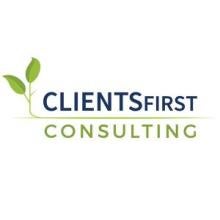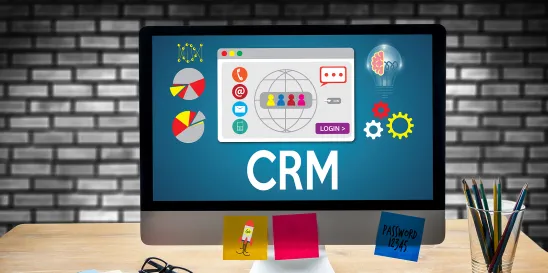Finding the right CRM system for your law firm can be trickier than catching a leprechaun. There are many options to consider, each with its own unique features and functions. Plus, a failed CRM implementation can be extremely costly, in financial terms, and in lost time and credibility, and you don’t often get a second chance at CRM success. This is why it is so important to select the right CRM the first time around.
Here, Chris Fritsch goes over four best practices you can follow to choose the right CRM system that meets your requirements and can provide a return on your investment, not just a pot of fool’s gold.
1. Problems First, Technology Second
Just as an Irish jig requires the perfect steps, a successful CRM implementation relies on a well-rehearsed dance between people, processes, and of course, technology. So when attempting a CRM implementation, you have to focus on the people and processes first and technology second. Although it is easy to get caught up in the bells and whistles during a CRM demo, firms have to resist the temptation to dive into features and functions before truly understanding your firm’s unique needs and requirements.
2. Assess Your Needs
Organizations buy marketing technology for several reasons, each reason being unique to the firm. To provide real value and return, before investing in a system, you should get a solid understanding of what you wish to accomplish with the software.
Start by creating a list of possible reasons you wish to acquire a CRM:
- Increase business development opportunities and revenue?
- Track and enhance marketing and business development efforts?
- Manage and evaluate the ROI of events and sponsorships?
Once you have a list of your firm’s needs, you may discover that you have more goals than you thought. If so, it is important to prioritize your goals so you do not try to boil the ocean. Trying to accomplish multiple goals at one time can be especially daunting during implementation and can end up decreasing the chances of a successful rollout.
Assign your goals to a timeline and prioritize them based on importance and value to users. For the initial implementation, set a few relevant goals, achieve those initial successes, communicate these successes – and repeat.
After you have a solid understanding of your firm’s needs, talk to your users to understand their daily struggles and expectations for the new system. One of the biggest frustration points we hear from firms is the lack of adoption, which can be easily avoided if the system’s users were involved during the selection process.
The challenge of getting people to use the software lies in the fact that everyone defines value differently. To get end-users to adopt the system, it has to provide value not only to the organization but to them individually. Make your users a part of the process upfront and gather their input and feedback on product features and functions.
3. Evaluate System and Providers
During system demonstrations, providers can promise everything under the rainbow. That is why it is important to fully document your requirements to make sure you are well-prepared before reaching out to providers. This can best be done through what I like to call a “demo roadmap.” This comprehensive, two to three-page document sets out all the details for demonstration and highlights the needs and requirements gathered from the needs assessment.
The roadmap will guide the CRM providers so they show you the features and functionality that can satisfy your needs and requirements so your organization can achieve success. This roadmap should be shared with the CRM provider well before the demo so they can adequately prepare.
Some larger organizations can take it a step further and create a much more detailed, formal Request For Proposal (RFP) document. This RFP can be sent to CRM providers to solicit answers to several questions before scheduling any demos. The formal responses can be evaluated to compare the system provider’s features and pricing so you can limit the number of demonstrations to only those that have the features and functionality to satisfy your firm’s needs and requirements.
4. Check References
Before committing to a CRM system, it is important to make sure you vet your system vendor. You must get all the necessary information you need to finalize your purchase.
First, ask the vendor for references you can speak to. Next, talk with other companies in your industry who have used the software. Ask open-ended questions that will not only teach you about the software but also about customer service and other important areas, like pricing, software reliability, and even their biggest headaches with using the software.
One Final Tip – Don’t Do It Alone!
You are more likely to catch the leprechaun and get their pot of gold if you are with a friend who has experience chasing leprechauns. Selecting the right CRM system can be a daunting process. Most firms have never been through the process before – and few want to repeat it.




 />i
/>i

